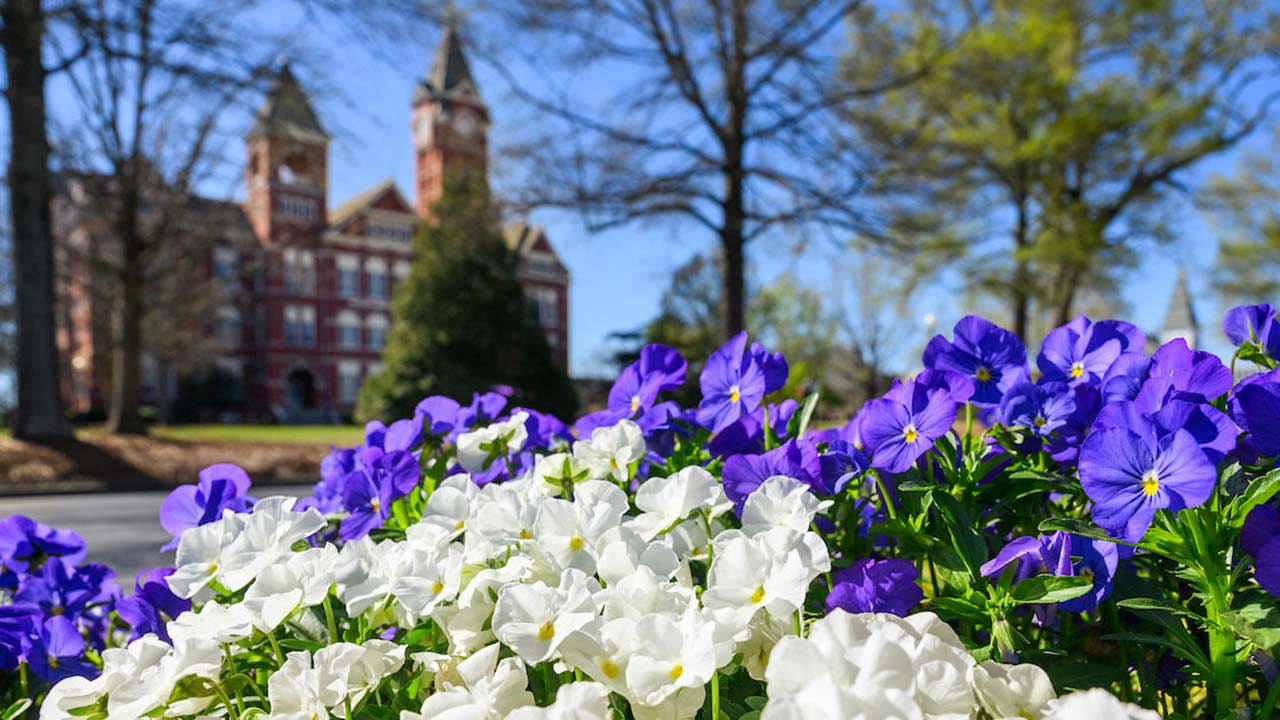content body

Eight innovative projects have been named recipients of Auburn University’s internal research and creative works funding awards programs for 2024.
The Research Support Program (RSP) and the Creative Work and Social Impact Scholarship Funding Program (CWSIS) were established by the Office of the Senior Vice President for Research and Economic Development. Both programs provide a competitive internal funding source to support faculty members’ research and creative scholarship as they refine their projects before competing for larger, external awards.
“The CWSIS and RSP provide applicants across all disciplines with the opportunity to participate in a competitive funding program,” said Christine Cline, associate director of Proposal Services and Faculty Support, the unit administering the programs. “The programs support a wide variety of research initiatives from creative work through STEM-focused projects. We appreciate the opportunity to engage with the participants from the initiation of the application cycle through the successful completion of their projects.”
The RSP is intended to foster the development and growth of innovative and transformational research activities. It builds on faculty expertise, stimulates interdisciplinary collaborations and strengthens seed research activities. It is a strategically focused Auburn investment that promotes promising and impactful new lines of research as well as the growth of collaborative and interdisciplinary teams to build the foundations of science, to overcome scientific and societal challenges and to promote and enhance the quality of life and well-being of individuals, groups and communities.
The CWSIS funding program fosters innovation and discovery and builds faculty reputation and competitiveness. Disciplines associated with CWSIS include design and the arts, humanities and applicable areas within business, education, social sciences and health and well-being.
This year’s recipients are:
Research Support Program
James Gillespie, College of Veterinary Medicine, “Development of Bacteriophage Nano/Microparticles for Nasal Delivery of Species-specific Immunocontraceptives”
Co-Investigator: Constantinos Kyriakis, College of Veterinary Medicine
Suhasini Gururaja, Samuel Ginn College of Engineering, “Integrated Manufacturing for ‘Tuned’ Microstructures for Targeted Enhanced Lightweight Structural Performance and Autonomous Damage Sensing (IMADS)”
Co-Investigator: Virginia Davis, Samuel Ginn College of Engineering
Junshan Lin, College of Sciences & Mathematics, “Computation-assisted Optical Imaging towards Sub-Nanometer Super-resolution”
Co-Investigator: Siyuan Dai, Samuel Ginn College of Engineering
Binita Mahato, College of Liberal Arts, “Urban Resilience and Social Vulnerability: The Past, Present, and Future of Climate Change Impacts in Mobile, Alabama”
Co-Investigators: Chandana Mitra, College of Science and Mathematics; Dr. Jake Nelson, College of Science and Mathematics; Rebecca Retzlaff, College of Liberal Arts
Yaoqi Zhang, College of Forestry, Wildlife and Environment, “Tree Shade on Summertime Electricity Consumption”
Co-Investigator: Wenying Li, College of Agriculture
Creative Work and Social Impact Scholarship Funding Program
Georges Fares, College of Human Sciences, “Bridging Eras: Merging Technology and Tradition in the Study of Bernini’s Works for the Purpose of Cultural Engagement”
Co-Investigator: Anna Ruth Gatlin, College of Human Sciences
Allie McCreary, College of Forestry, Wildlife and Environment, “Climate Change Resiliency Along the Gulf Coast: How Tourism Providers Perceive Impacts & Adaptation Strategies”
Xavier Vendrell, College of Architecture, Design & Construction, “Site, Construction, Users, My Favorite Movies, and Other Circumstances: Xavier Vendrell, Architect”
More information about these and other funding support programs supported by the Auburn Office of the Senior Vice President for Research and Economic Development can be found by clicking here.
Submitted by: culluja@auburn.edu




